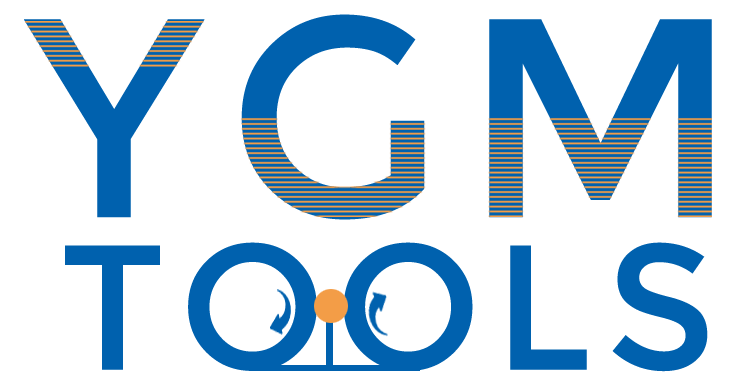
-
 Afrikaans
Afrikaans -
 Albanian
Albanian -
 Amharic
Amharic -
 Arabic
Arabic -
 Armenian
Armenian -
 Azerbaijani
Azerbaijani -
 Basque
Basque -
 Belarusian
Belarusian -
 Bengali
Bengali -
 Bosnian
Bosnian -
 Bulgarian
Bulgarian -
 Catalan
Catalan -
 Cebuano
Cebuano -
 Corsican
Corsican -
 Croatian
Croatian -
 Czech
Czech -
 Danish
Danish -
 Dutch
Dutch -
 English
English -
 Esperanto
Esperanto -
 Estonian
Estonian -
 Finnish
Finnish -
 French
French -
 Frisian
Frisian -
 Galician
Galician -
 Georgian
Georgian -
 German
German -
 Greek
Greek -
 Gujarati
Gujarati -
 Haitian Creole
Haitian Creole -
 hausa
hausa -
 hawaiian
hawaiian -
 Hebrew
Hebrew -
 Hindi
Hindi -
 Miao
Miao -
 Hungarian
Hungarian -
 Icelandic
Icelandic -
 igbo
igbo -
 Indonesian
Indonesian -
 irish
irish -
 Italian
Italian -
 Japanese
Japanese -
 Javanese
Javanese -
 Kannada
Kannada -
 kazakh
kazakh -
 Khmer
Khmer -
 Rwandese
Rwandese -
 Korean
Korean -
 Kurdish
Kurdish -
 Kyrgyz
Kyrgyz -
 Lao
Lao -
 Latin
Latin -
 Latvian
Latvian -
 Lithuanian
Lithuanian -
 Luxembourgish
Luxembourgish -
 Macedonian
Macedonian -
 Malgashi
Malgashi -
 Malay
Malay -
 Malayalam
Malayalam -
 Maltese
Maltese -
 Maori
Maori -
 Marathi
Marathi -
 Mongolian
Mongolian -
 Myanmar
Myanmar -
 Nepali
Nepali -
 Norwegian
Norwegian -
 Norwegian
Norwegian -
 Occitan
Occitan -
 Pashto
Pashto -
 Persian
Persian -
 Polish
Polish -
 Portuguese
Portuguese -
 Punjabi
Punjabi -
 Romanian
Romanian -
 Russian
Russian -
 Samoan
Samoan -
 Scottish Gaelic
Scottish Gaelic -
 Serbian
Serbian -
 Sesotho
Sesotho -
 Shona
Shona -
 Sindhi
Sindhi -
 Sinhala
Sinhala -
 Slovak
Slovak -
 Slovenian
Slovenian -
 Somali
Somali -
 Spanish
Spanish -
 Sundanese
Sundanese -
 Swahili
Swahili -
 Swedish
Swedish -
 Tagalog
Tagalog -
 Tajik
Tajik -
 Tamil
Tamil -
 Tatar
Tatar -
 Telugu
Telugu -
 Thai
Thai -
 Turkish
Turkish -
 Turkmen
Turkmen -
 Ukrainian
Ukrainian -
 Urdu
Urdu -
 Uighur
Uighur -
 Uzbek
Uzbek -
 Vietnamese
Vietnamese -
 Welsh
Welsh -
 Bantu
Bantu -
 Yiddish
Yiddish -
 Yoruba
Yoruba -
 Zulu
Zulu
Thread Rolling Machine HS Code and Product Information Overview
Understanding the HS Code for Thread Rolling Machines
Thread rolling machines play a crucial role in the manufacturing process of various threaded components, commonly used in the automotive, aerospace, and construction industries. As global trade expands, understanding the Harmonized System (HS) code for these machines becomes increasingly important for manufacturers, exporters, and importers. The HS code serves as a universal classification system for international trade, making it easier to identify goods and apply tariffs.
What is a Thread Rolling Machine?
A thread rolling machine is used to create high-precision threads on metal fasteners and components, such as screws, bolts, and nuts. This process involves the deformation of the material rather than cutting, which results in stronger threads. Thread rolling machines can operate in various modes, including flat, cylindrical, and planetary thread rolling, allowing manufacturers to produce a wide range of products efficiently.
Importance of HS Code
The HS code is an internationally standardized system developed by the World Customs Organization (WCO). It categorizes products into specific codes that help in trade analysis, customs duties, and taxes. For manufacturers and traders dealing with thread rolling machines, knowing the correct HS code is vital for several reasons
1. Customs Clearance When importing or exporting thread rolling machines, the correct HS code must be declared to ensure smooth customs procedures. Misclassification can result in delays, fines, or confiscation of goods.
2. Tariff Application Different HS codes are associated with varying tariff rates. By correctly identifying the HS code for thread rolling machines, businesses can ensure they are complying with applicable duties and taxes, potentially leading to cost savings.
thread rolling machine hs code product

3. Market Research The HS code can also aid businesses in market research by providing insights into trade statistics related to thread rolling machines. Understanding the demand and supply dynamics in different countries can help businesses with strategic planning.
4. Regulatory Compliance Certain regulations and standards may apply to different categories of machinery. Having the right HS code helps companies adhere to industry standards and ensures that their products meet safety regulations.
HS Code for Thread Rolling Machines
While the exact HS code for thread rolling machines can vary by jurisdiction, they are generally classified under Chapter 84, which covers machinery and mechanical appliances. Specifically, these machines might fall under the subheading dealing with “machine tools for working metal.”
In many countries, the HS code for thread rolling machines is often listed as 8462. A more specific code might be available depending on the machine's exact function and design. It is essential for businesses to consult with trade experts or customs agents to ascertain the precise code applicable in their region.
Conclusion
In a highly competitive global market, understanding the HS code for thread rolling machines is essential for manufacturers and traders. It not only facilitates smoother international transactions but also ensures compliance with customs regulations and tariffs. By prioritizing accurate classification, businesses can optimize their operations and gain a competitive edge in the manufacturing sector. As the demand for high-quality threaded components continues to grow, staying informed about trade regulations will be paramount for success in the industry.
